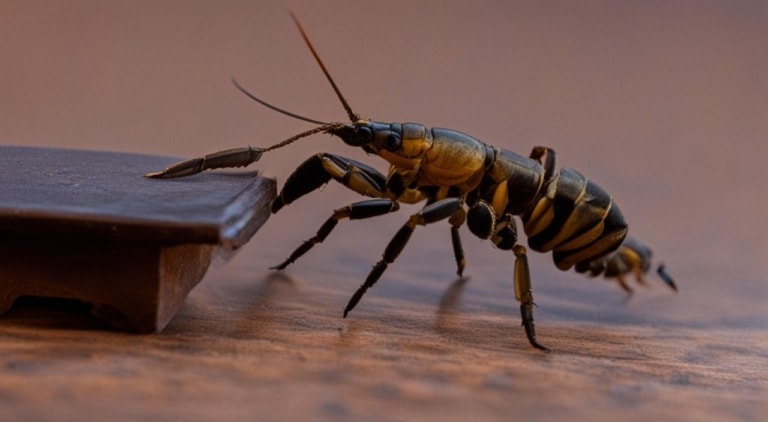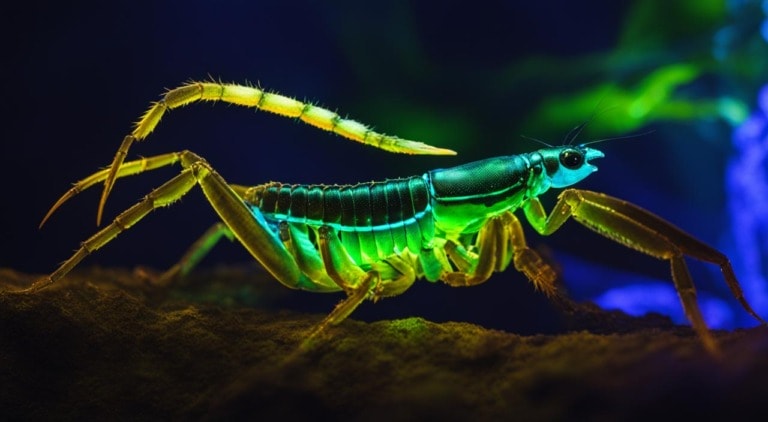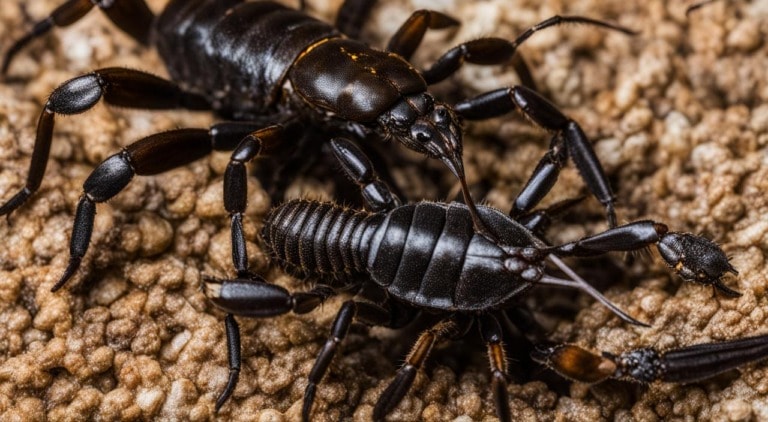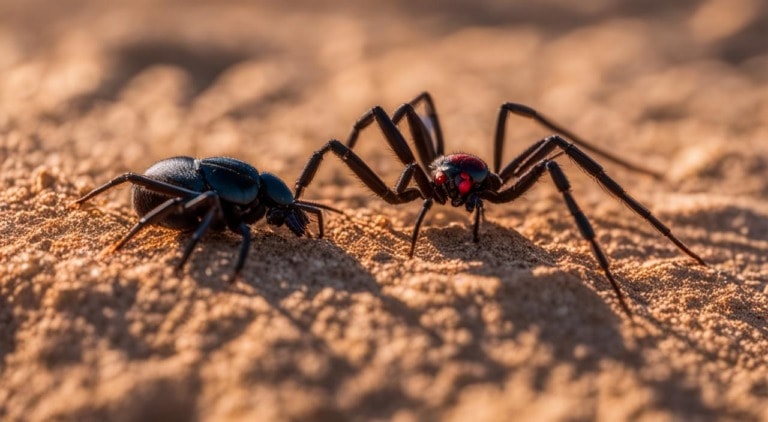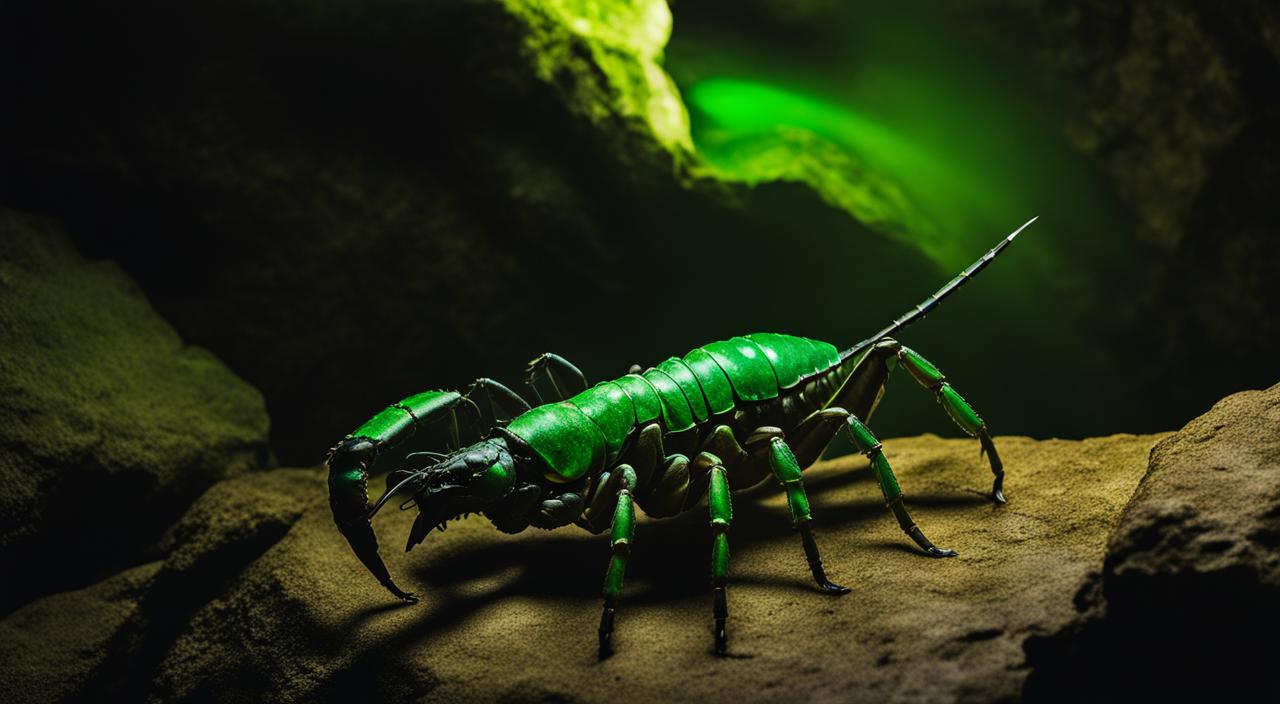
Scorpions have a fascinating ability to glow in the dark. When exposed to ultraviolet (UV) light, these arachnids emit a vibrant blue-green glow, lighting up like beacons against the darkness. The exact reason behind this phenomenon is still unknown.
Some theories suggest that the glow could be a by-product of normal chemical reactions, while others propose that it may serve as a warning to predators or a means of communication between scorpions.
However, Douglas Gaffin from the University of Oklahoma has an intriguing idea that scorpions glow to convert the dim UV light from the moon and stars into the color they see best – blue-green.
This theory suggests that scorpions use their entire bodies as light collectors to amplify the faint signals of starlight and help them find hiding spots and shelter in the open desert.
Fluorescent Chemistry Behind Scorpion Glow
Have you ever wondered why scorpions glow in the dark? This fascinating phenomenon is attributed to the presence of a fluorescent compound called beta-carboline in their exoskeletons. When exposed to ultraviolet (UV) light, the beta-carboline reacts and emits a vibrant greenish-blue glow, creating a mesmerizing spectacle.
Scorpions, like other arthropods and insects, have a unique structure on their exoskeletons known as the hyaline layer. This thin section within the cuticle is responsible for the fluorescence reaction under UV light.
The presence of carboline chemicals in scorpions’ exoskeletons is thought to have evolved as a natural sunscreen, protecting their epidermal cells from the intense UV radiation they encounter in their habitats.
Researchers believe that the evolution of this unique chemistry allows scorpions to fluoresce and provides a valuable tool for studying and surveying scorpion populations. By using UV light, researchers can easily locate and identify scorpions in the wild, aiding in ecological studies and conservation efforts.
Purpose and Benefits of Scorpion Glow
The mysterious phenomenon of scorpion glow has intrigued scientists for decades. While the exact purpose behind this mesmerizing ability is still unknown, several theories have been put forth to explain its significance.
One theory suggests that scorpions may use their fluorescent exoskeletons as giant eyes to detect UV light.
By sensing the presence of UV light, scorpions can determine when it’s night and time to go hunting for prey. Observations have shown that hungry scorpions are more active on darker nights, implying their reliance on UV light detection for hunting behavior.
Another hypothesis proposes that the fluorescence of scorpions acts as a natural sunblock, protecting them against the harmful effects of UV radiation.
This unique adaptation could help scorpions survive in their harsh desert habitats where sunlight is intense. Additionally, the intense blue-green glow emitted by scorpions may serve to confuse their prey, making it easier for them to catch and subdue their targets.
Furthermore, the scorpion glow may play a role in communication among these creatures.
By emitting and detecting UV light signals, scorpions may be able to communicate with one another, potentially for mating purposes or territorial marking. However, further research is needed to validate these hypotheses and unravel the true significance of scorpion glow.

